The Loro Parque group have filed a claim for €122.3 million from the Southern Town Council of San Bartolomé de Tirajana, for compensation and financial damages caused by the delay in granting the urban planning license for the construction of their long anticipated Siam Park Gran Canaria attraction in El Veril, at the entry point to Playa del Inglés. Of this amount, €30.3 million corresponds to actual damages, €89.9 million to lost profits, and €1.9 million has been claimed for other “missed opportunities”.
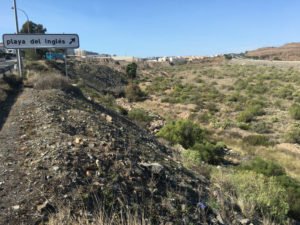 The actual damages include expenses such as land acquisition, the costs of drafting the Modernisation Plan for El Veril, canalisation works on the ravine, and the amounts lost due to regional incentives and the investments made by the company in the Reserva de Inversiones (Investment Reserve). To calculate the lost profits, which amount to €77.7 million for the park and €12.1 million for the hotel, the estimated revenues from operating these businesses from their scheduled opening in 2018 until 2023 are taken into account.
The actual damages include expenses such as land acquisition, the costs of drafting the Modernisation Plan for El Veril, canalisation works on the ravine, and the amounts lost due to regional incentives and the investments made by the company in the Reserva de Inversiones (Investment Reserve). To calculate the lost profits, which amount to €77.7 million for the park and €12.1 million for the hotel, the estimated revenues from operating these businesses from their scheduled opening in 2018 until 2023 are taken into account.
Loro Parque group had planned to begin construction in July 2016, once the Canary Islands Government had approved the Modernisation, Improvement, and Competitiveness Plan for El Veril, back in December 2015, guaranteeing preferential and expedited processing of these investments with any administrative authority.
The land purchase, ravine canalisation, various incentives, and RIC (Reserva de Inversiones Canaria) contributions amount to €30 million.
Apparently by coincidence, the compensation claim, accompanied by an expert economic report and documentation on the entire administrative and judicial process since the approval of the El Veril Plan, was submitted by the Loro Parque group, led by the Kiessling family, to the Registry of the San Bartolomé Town Hall on the same day and time that they presented their renewed project for the water park to a packed room of press and influential members of Gran Canaria society at the Gabinete Literario, in Las Palmas de Gran Canaria. Wolfgang Kiessling, the group’s president, complained on Wednesday that they have been working “for nothing” for twelve and a half years, while his son, Christoph Kiessling, the group’s vice president, provided details of the water park and the 220-room hotel they plan to build at the entrance of Playa del Inglés, now with a revised total investment of €160 million.
The claim, addressed to the Town Council and signed by the company’s legal representative, Jaime Rodríguez Cíe, (the same man who claimed during the run up to local elections last month that if Marco Aurelio Perez were returned as mayor that the project would never get off the ground), on behalf of the investors also points out that other administrations involved in the bureaucratic process leading to the construction of the waterpark facilities, and hotel, share joint responsibility. They hold the island council (Cabildo), the Insular Water Council (Consejo Insular de Aguas), a body linked to the island corporation, and the Government of the Canary Islands accountable.
Obstructionist actions
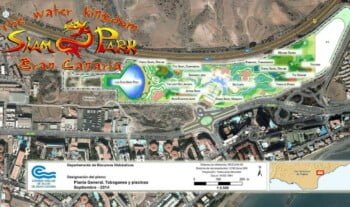 “It is beyond doubt that the three administrations – the Government of the Canary Islands, the island council, and the Town Council of San Bartolomé – considered the project to be of great relevance, declaring its strategic interest. However, they did not take any action to facilitate its implementation,” states the report submitted by Loro Parque to the Council’s Registry.
“It is beyond doubt that the three administrations – the Government of the Canary Islands, the island council, and the Town Council of San Bartolomé – considered the project to be of great relevance, declaring its strategic interest. However, they did not take any action to facilitate its implementation,” states the report submitted by Loro Parque to the Council’s Registry.
On one hand, they hold the Canary Islands Government responsible for not providing oversight of the project through the Committee for Investments and Strategic Projects. They blame the island Cabildo for not carrying out any of the actions agreed upon in a May 2014 agreement. Regarding the Town Council, they point out that in another agreement from 2018, it was acknowledged that the water park “should not be subject to excessive bureaucratic entanglement,” yet until the Supreme Court annulled the Plan in 2022, no action was taken to implement it. The local council led by the outgoing coalition mayor, Conchi Narvaez, defeated in the May 28th local election, had been unable to bring about a start to the project, during their four-year tenure, prior to being required to completely reconstitute the original plan, due to a required waterways report that was found to be missing from the files on record.
Although the investment group attributes responsibility to all three administrations, they consider the San Bartolomé de Tirajana Town Council’s dilatory and obstructionist actions, all while Marco Aurelio Pérez was last mayor (2011 – 2019), as the main cause of the project’s blockade.
Loro Parque group emphasises that all their actions, carried out by Loro Parque S.A. and Siam Park S.A., were aligned with the planned schedule for commencing construction in 2016. To achieve this, they sought assistance amounting to €6.8 million from the Economic Incentives Program (Incentivos Económicos Regionales) granted in 2017 and made significant contributions to the Investment Reserve from 2014 onwards, totalling approximately €12 million. They did so with the belief that they would be able to build the water park.
Unreasonable delay
“Had there not been an unreasonable delay in the completion of administrative procedures, which was entirely unforeseeable given the strategic nature of the investment and the priority assigned to its promotion by all administrations, the company’s planning would have been fulfilled, even considering possible unforeseen circumstances in the execution of the works,” states the compensation claim submitted to the San Bartolomé de Tirajana Town Hall.
The investors point out that the initial urban development plan only included the water park, without the hotel. Therefore, they insist that “the complexity of the works was not relevant, nor should the development of the urban execution instruments, which encountered so many obstacles and impediments, have been.”
The water park investors accuse the previous local council, led by Marco Aurelio Pérez, of acting in an obstructionist manner.
It was in 2012, at the Berlin Tourism Fair, when the Kiessling family first announced their renewed desire to develop a water park on the south of Gran Canaria, similar to the one built on Tenerife. This initiative, explain the tourism group, was greatly influenced by the encouragement given by the then president of the island cabildo, Bravo de Laguna, to provide the island with leisure offerings in line with its accommodation offerings and the number of tourists it attracts.
In light of these prospects, in 2014, this group, which was only established on Tenerife at the time (later creating the Poema del Mar attraction in the capital, Las Palmas de Gran Canaria), purchased the 174,827-square-meter plot of land, in El Veril, from the noble Del Castillo family for €6 million and spent nearly €10 million adapting it. In 2015, the Insular Water Council, responsible for all public waterways on the island, granted them a 25-year concession to occupy the El Veril ravine, and in December 2015, the Government approved the Modernisation Plan for El Veril.
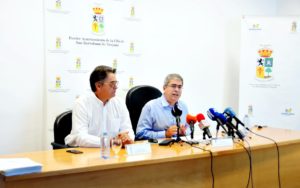 By January 2018, the investors had applied for the final license from the Town Council, necessary to start work, and rejected a previously unexpected town hall claim for a further €2m fee for “peripheral works”, based on newly enacted municipal ordinance requiring developers to pay for extra public works around new developments. In April of that year, the municipal government, led by Marco Aurelio Pérez, denied the license due to “lack of legal requirements.” Even then, the company reported the damages and losses caused by the delay in license issuance. In March 2022, the Tunte Local Government Board approved the urbanisation project, at that time under Mayor Narváez’s administration. However last summer, in June 2022, the Supreme Court overturned the El Veril Plan due to the absence of one necessary report on available water resources. From February of this year, the public company Gesplan has been working on the new urban planning project, expedited by the outgoing administration.
By January 2018, the investors had applied for the final license from the Town Council, necessary to start work, and rejected a previously unexpected town hall claim for a further €2m fee for “peripheral works”, based on newly enacted municipal ordinance requiring developers to pay for extra public works around new developments. In April of that year, the municipal government, led by Marco Aurelio Pérez, denied the license due to “lack of legal requirements.” Even then, the company reported the damages and losses caused by the delay in license issuance. In March 2022, the Tunte Local Government Board approved the urbanisation project, at that time under Mayor Narváez’s administration. However last summer, in June 2022, the Supreme Court overturned the El Veril Plan due to the absence of one necessary report on available water resources. From February of this year, the public company Gesplan has been working on the new urban planning project, expedited by the outgoing administration.




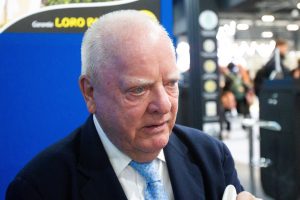


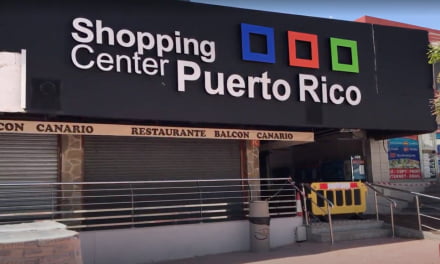

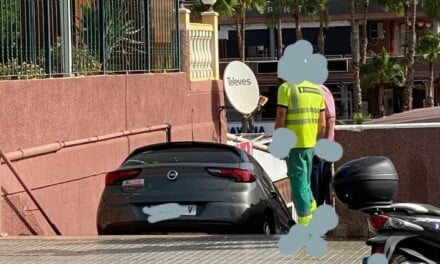



“Unreasonable delay” ? I don’t think, it’s “Unreasonable”…. there ARE reasons, you can find them in the pockets of Marc Aurelio and Conchi